Blood on the Dancefloor: The gay police officer murder which shocked NI
- Published
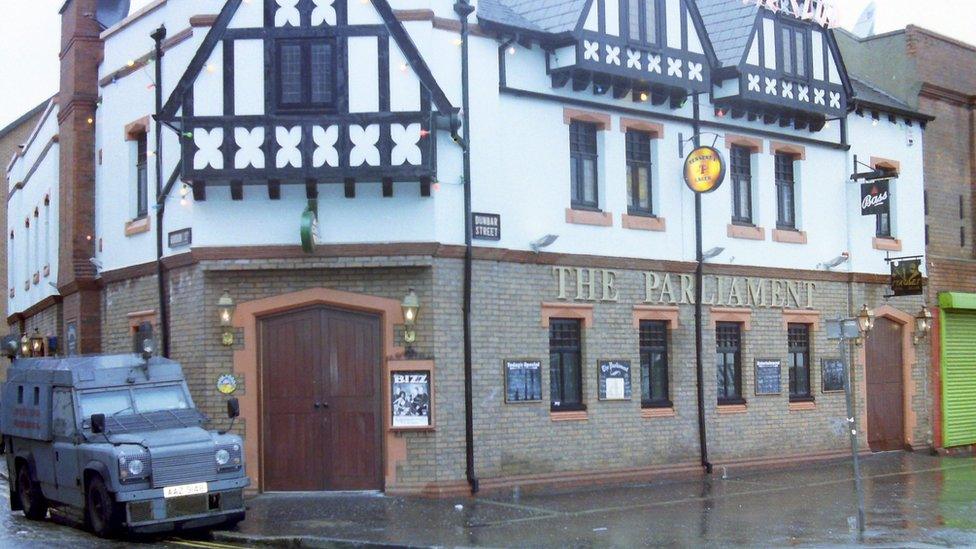
The Parliament Bar was the only openly gar bar in Belfast in 1997
On 9 May 1997, clubbers were enjoying drinks and dancing at Belfast's only openly gay bar, The Parliament.
But what would later happen that night would have a ripple effect, not only across Northern Ireland but through the decades.
Policeman Darren Bradshaw, one of only a few openly gay officers in the Royal Ulster Constabulary, was shot dead by republicans.
He was just 24 years old and murdered in front of hundreds of people.
"I knew from that point on nothing would ever be the same again," Vincent Creelan, Darren's police trainer and friend, told the BBC.
'What a loss it was'
Vincent described receiving the call that he dreaded. A police officer had been shot but their identity had yet to be confirmed.
He remembered the sickening feeling of realisation that it could be Darren.
It was up to Vincent to identify him.
"Darren was just lying, he looked small," he said. "I just had a look at him and knelt for a while. I remember just thinking to myself what a loss it was."
Vincent has been telling his story to Blood on the Dancefloor, a BBC series examining Darren's death and its impact on the LGBT community.
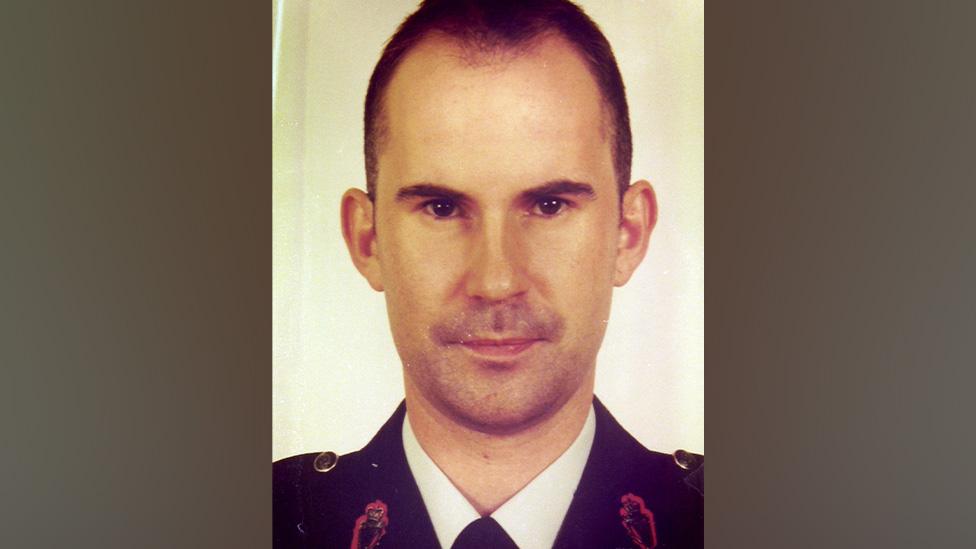
Darren Bradshaw was shot in the back at Belfast's Parliament Bar


Building a community
When The Parliament opened in 1994 it was the only venue that openly advertised itself as a gay bar and welcomed the gay community, making it a sanctuary.
There would regularly be religious protests and clubbers would be harassed as they entered.
However, that would not hold it back from creating a thriving scene.

Trudy Scrumptious (right) performed as a drag queen at the Parliament Bar
One of the drag queens, Trudy Scrumptious, explained how the bar bridged more than just the homophobic divide.
"That was the beauty of having the gay scene though, because it was one of those places where Protestants and Catholics mixed and celebrated each other, and were best friends.
"A lot of people were ousted from their families so they had to find their new family in the gay bar."
The Parliament hosted the first drag cabaret of its kind in the city with Trudy Scrumptious, Tina Leggs Tantrum and Lady Portia Di Monte entertaining an audience of hundreds.
Portia remembered how the bar brought something new to the city's nightlife.
"It was electric, like I walked in, and it was just like, I'm alive. It was just so exciting to be somewhere where you knew that you were safe."
But that safety would be shattered on 9 May 1997.
'The killer looked at us'
Actor Kristian Nairn, now world famous as Hodor in Game of Thrones, was a Parliament regular and at the bar that night.
"I remember my friends and I were sat on the right hand side of the front door," he said.
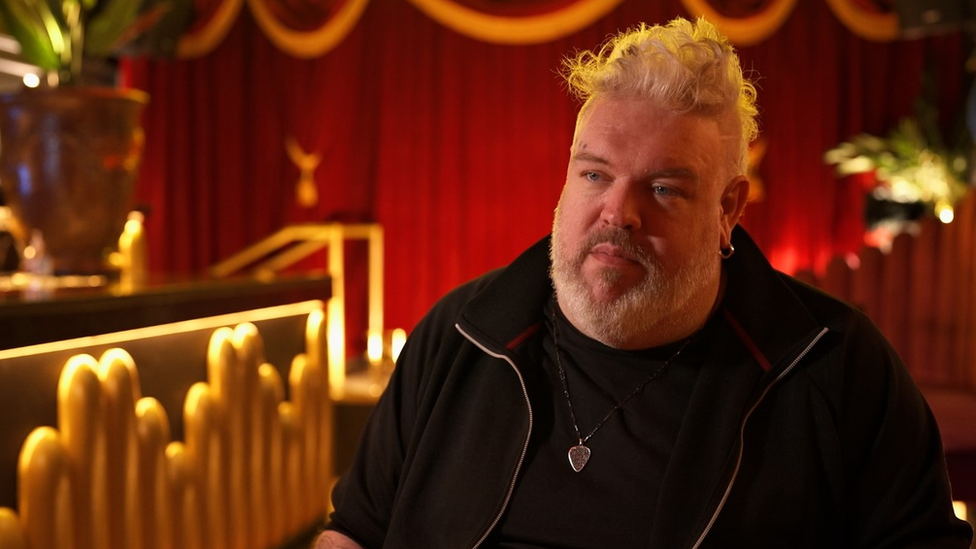
Actor Kristian Nairn was a regular at the bar and was there the night Darren was shot
He felt there was nothing that stood out about Darren.
"We had not been there long, we were just having a bit of a laugh."
By 22:00, Darren had been in the bar for nearly two hours. There was a Friday night energy and the nightclub upstairs was about to open.
Outside, a red Toyota Carina pulled up, and two men exited carrying guns. One had a drawn-on beard and was wearing a wig.
The gunman walked up to Darren and from about three feet away shot him in the back.
"The next thing there was a very loud bang. I remember seeing a girl sitting at the bar covered in blood," Kristian continued.
The gunman quickly ran towards the exit. "This guy just legs it out, really kicked the doors open, he looked at us on the way out."
The republican paramilitary group the Irish National Liberation Army (INLA) claimed responsibility for the killing but no one has ever been convicted for Darren's murder.
Being gay in Northern Ireland
Homophobic attitudes were still prevalent in Northern Ireland society in 1997.
It was legal to fire someone for their sexuality at the time, as well as to refuse to rent a property or give them a job.
Cara-Friend, external is one of the biggest LGBT charities in Northern Ireland. Set up in 1974 as a PO Box and eventually a helpline, the organisation gives a first hand glimpse into what life was like.
The first night the helpline launched, its popularity shorted the Queen's University telephone system.
For the first time, Cara-Friend is exploring its archive of letters received during the 1980s and 90s, to learn more about LGBT experiences during those decades.
This was the society Darren Bradshaw would be coming out to.
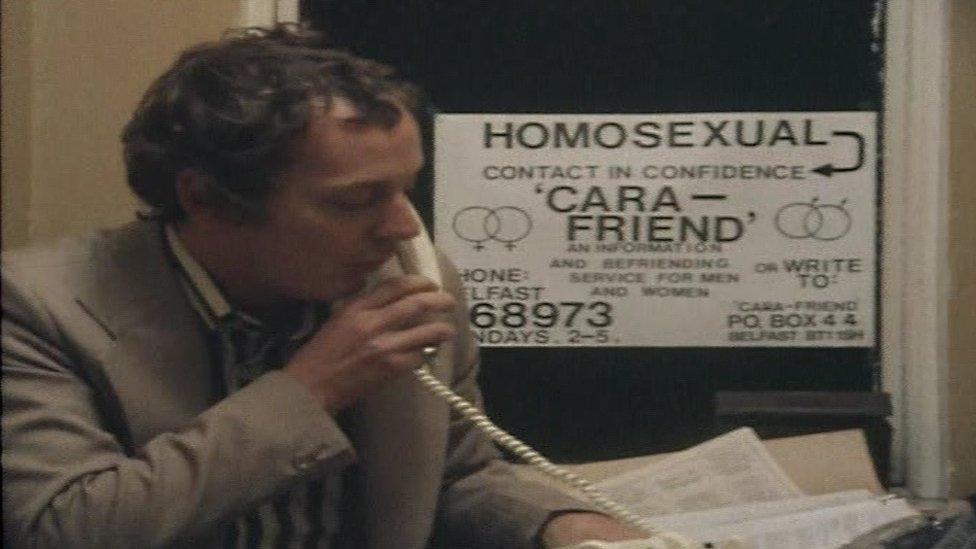
Cara-Friend ran a helpline in the 1970s
Cara-Friend has been categorising thousands of help letters to look for themes.
"The word that appears more often than any other word is 'loneliness', or 'isolation'."
Adam Murray is the community development manager and explained that often the letters were from people feeling deeply isolated.
"Just people looking for human connection, looking for someone like them," he said.
These letters give an insight into how important a space like The Parliament bar was and why it was so important to Darren.
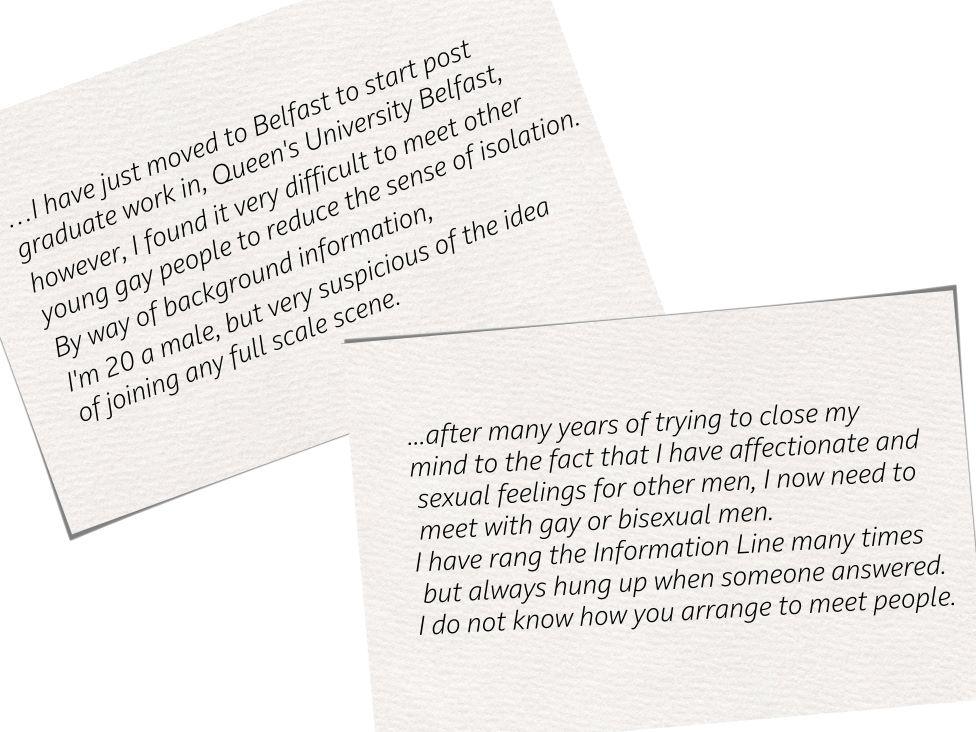
'Your death will make a difference'
For Darren, being a policeman and being gay would be tough. Police attitudes at the time, like parts of society, were very conservative.
The Royal Ulster Constabulary, which was later replaced by the Police Service of Northern Ireland, was trying to change things.
While there were gay police associations across the rest of the UK - there was not one in Northern Ireland.
At Darren's funeral Vincent Creelan said he made a promise: "Your death will make a difference somehow."
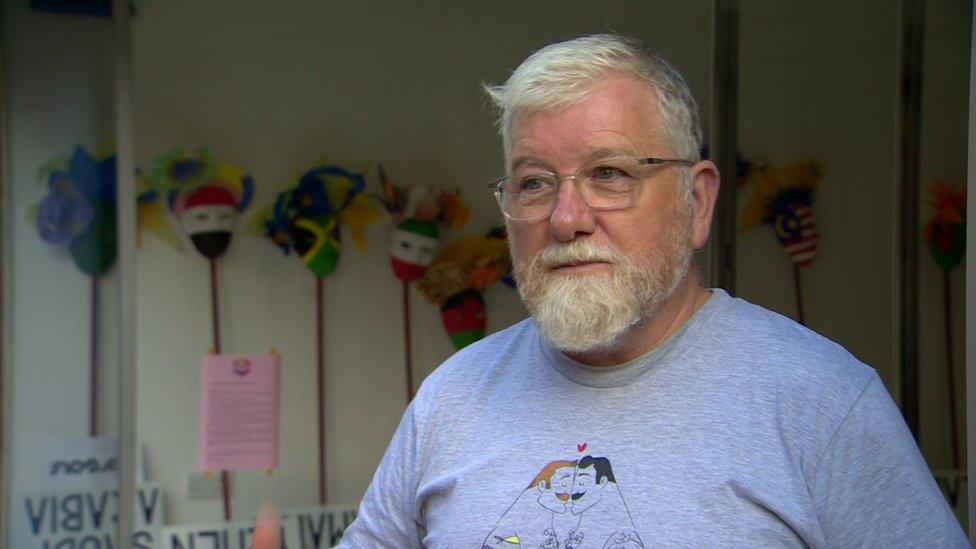
Vincent Creelan, a former police officer, was at the scene shortly after the murder
Darren's murder gave him the courage to make a life changing decision.
In order to set up a branch in Northern Ireland you needed an openly gay, public facing officer.
"So I decided, right, if that's where it's going to take it. If that's the only way we can progress this, I came out."
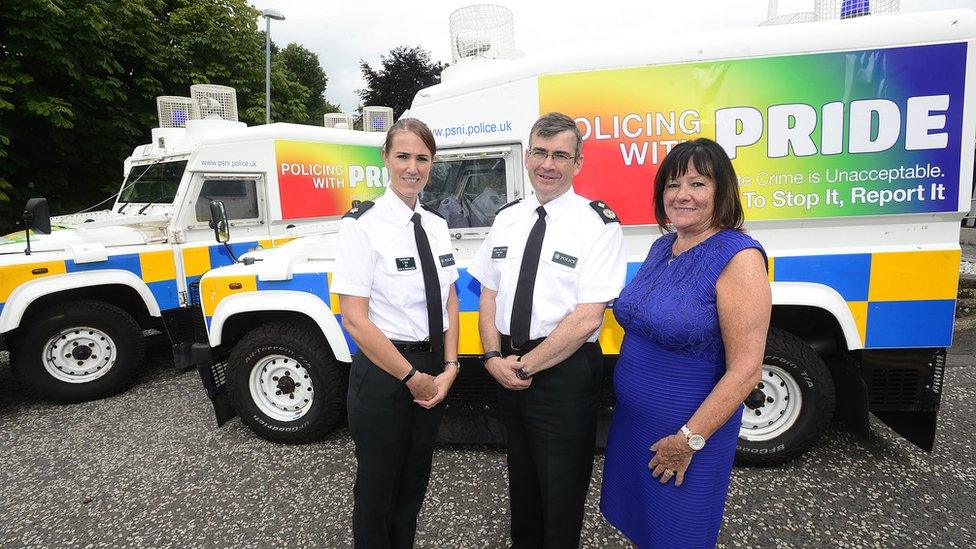
August 2017 was the first time that uniformed officers took part in the annual Belfast Pride parade
In 2003, the Gay Police Association was launched in Northern Ireland.
"So that was the beginning of, I guess, what I described as Darren's legacy trying to change things within the police service. Darren's legacy is that it exists."
For Darren's brother, Scott Bradshaw, the legacy he wants for him is clear.
"The goodness of it is that it never happens again. He wasn't just a uniform or a picture on a wall or something like that there. He was somebody."